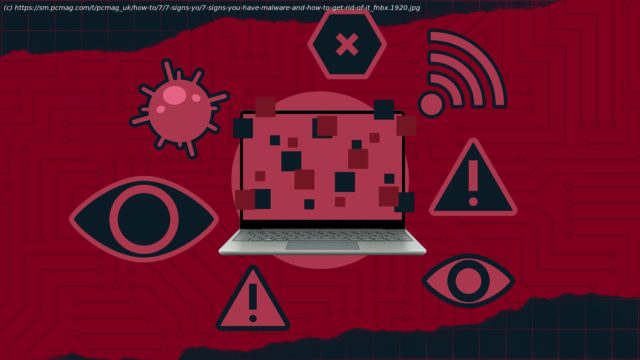Is your PC acting strange? Look for these signs you have malware, but don’t panic if it turns out that you do. Our tips can help you get rid of it.
Once you clear out the crapware from a new PC, it’s like a new house. No creaks and squeaks, no dark corners, everything sparkles. But that pristine state doesn’t last. Before long, you succumb to the hypnotic spinning “wait” icons. In the background, the apps you’ve installed squabble, fighting each other for dominance. In short, it becomes a normal, well-used PC.
Sometimes, though, a slow system or weird behavior can be an outward and visible sign of an inward and serious malware infestation. Is your PC just slow, or is malware dragging it down? How can you know? If you’ve observed any of the seven warning signs below, you may have a malware problem.
Just because you have malware protection installed doesn’t mean you can ignore these warning signs. Software isn’t perfect, and sometimes, a brand-new zero-day malware attack can slip past your security, at least until the purveyors of your protection push out an update.1. Pop-Up Ads Pop Up Everywhere
While not as common as before, adware programs bombard their victims with advertisements. Sometimes, they’re ads for legitimate products, netting an affiliate fee for the adware perpetrator any time someone clicks on the ad. Other times, they contain links to malicious websites that will attempt to drop more malware on your PC.
Of course, many legitimate websites include various types of ads—they make money selling ad space so you can enjoy their content for free. You can still choose to run ad-blocking software if you really hate those ads. If you start seeing pop-up ads even though you’re running an ad blocker, those ads likely come from an adware program, not from a legitimate source.2. Your Browser Keeps Getting Redirected
Not every site redirect is malicious, but if you find that trying to reach DuckDuckGo or Google takes you to an unfamiliar search site, you have a problem. Sometimes, the redirection is less noticeable. For example, a banking Trojan might divert your browser to a fraudulent site that looks just like your bank’s real site.






